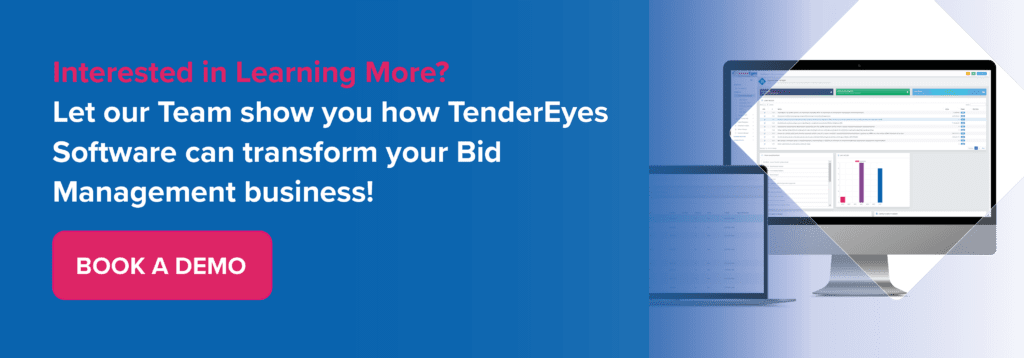The advent of COVID-19 in 2020 resulted in unprecedented global change in so many aspects of our lives. With ‘Working from Home’ becoming the norm for so many and remaining so into the future, the bid management industry, like so many other sectors is undergoing its own digital transformation.
In this blog we discuss how the remote working phenomenon has impacted high value public sector and commercial bid management. We examine how organisations are adapting to these changes with the adoption of new working practices and digital technologies.
Seismic Shift
2020 proved to be a huge logistical nightmare for businesses worldwide, with many scrambling to change their business models, processes, activities and resources. This has entailed enormous shifts in thinking to effectively manage and engage with employees in this new virtual world. Companies without existing remote working operations were certainly worst hit.
Globally according to Gartner, some 88% of organisations made it mandatory, or encouraged their employees, to work from home in response to the pandemic.
Businesses suddenly needed to invest heavily in furniture for home offices, IT hardware and software. Thankfully, today’s advances in technology and cloud computing have allowed for rapid deployment for most. Digital transformation at its best and quite an impressive feat when you think about it!
Spinning Your Virtual Plates
The submission of high value tenders includes hundreds of questions on numerous business topics such as legal, product, health & safety, environment etc, requiring input from many ‘Subject Matter Experts’. A key skill set of any Bid Manager or team is to instigate and coordinate information requests and responses, keeping a close eye on deadlines and chasing when needed.
This can be challenging at the best of times, with Subject Matter Experts (SMEs) often sat in other teams, divisions, geographies and time zones. Add Working from Home to the mix and it becomes a huge coordinating challenge. Especially for those operating with limited formal processes, cloud-based project management or team working tools in place.
As we know, there has been a huge uplift in demand since March 2020, for collaborative and video calling apps, as reflected in the apps charts, where the likes of Gmail, Chrome and Microsoft previously dominated.
The top three apps of 2020 – Zoom Cloud Meetings, Google Meet and Microsoft Teams didn’t even feature in the top 20 business or productivity apps by downloads in 2019. Computer Weekly.
These apps have been the cornerstone to successful home working. However, they do not necessarily deliver on the finer nuances of activity and collaborations required for successful bid management and winning tender submissions.
Banish Those Data Silos
Tender activity starts with assessment of the documentation supplied by the procuring organisation. This sets out the evaluation criteria, questions and scoring mechanisms. So it is vital to make these key resources easily accessible and available to the whole bid team and SMEs. Responding to tender questions also involves the collation and evaluation of internal documents and intelligence, again requiring easy access for all involved.
Unfortunately, disparate information often sits with individuals, on local hard drives or standalone department applications and directories. Data silos have become even more prolific with the increased numbers of technology tools adopted by organisations. This makes it difficult, frustrating and time consuming to find and share content and intelligence.
As IBM has observed “What we’ve learned is that many of the most common challenges associated with data aren’t really analytics problems. In many cases, these problems are fundamental, even traditional, information integration problems.”
The difficulties and risks associated with data silos has been exasperated by the advent of remote working. This highlights the need for a centralised directory of all bid documentation and information in this new home working world. The adoption of such a knowledge bank will help ensure:
- Intelligence is easily accessible, shared and understood
- Content continuously updated and improved
- Intellectual property secured and protected.
Project Agility at its Best
Completion of the main supplier questionnaire, consisting of hundreds of questions is usually 6-8 weeks. This becomes even more challenging when responding to multiple tenders at the same time.
This puts bid teams and SMEs, who often have other responsibilities and priorities, under inordinate pressure to meet deadlines. There is a lot of work to be instigated, completed and approved before submission. Often projects, tasks and chasing responses are manually activated, with remote working making completion of work even more challenging.
Implementing digital transformation and the adoption of a bid management solution helps kick-start the process, delivers agile working and alleviates potential delays. This frees up resources to better focus on the development of tender responses. Benefits include:
- Streamlined workflows, automated information requests, progress alerts and reminders
- Integrated approval processes
- Deeper communication and collaboration
- Quicker issue identification and resolution
- Improved quality and competitiveness of tender responses.
Wellbeing at the Forefront
The abrupt social isolation from colleagues and working environments experienced by so many, has raised many concerns around employees physical and mental wellbeing. Employers have needed to quickly address duty of care responsibilities for large numbers of homeworkers.
This includes health and safety issues such as appropriate working environments and desk set up. Reduced physical engagement, working in difficult home environments and fatigue from continuous video meetings has increased potential risks of anxiety and depression. This has required different mindsets, strategies and mechanisms to support employee’s wellbeing, morale and work, life balance.
67% of employees felt less connected to colleagues because of home working. Royal Society of Public Health.
Technology has played a huge role in helping organisations adapt to remote working. Retaining virtual contact and engagement with colleagues and managers through collaboration and video tools has been critical to success. Organisations with existing cloud-based business solutions such as CRM, accounting, ERP, project management, bid management and HR fared better in quickly in addressing negative impacts of remote working.
Productivity Quandary
Prior to COVID-19, remote working was viewed by many as not ideal, in the belief that employee productivity would be reduced. However, with wholesale home working under the global microscope, there are numerous reports being published that are busting this myth!
It is safe to say that home working does not appear to have resulted in an overall decline in productivity. In many circumstances, business have seen increased productivity. Employees no longer having to do stressful daily commutes and working in comfortable home environments, away from open plan offices and constant distractions, can be more focused and productive.
Companies successfully managing their workforce, time and resources prior to the pandemic, have been most effective in maintaining and increasing productivity during this period. Those with established working practices and business support tools have been able to transition more effectively, with limited disruption to team working and output.
According to The Harvard Business School organisations with poor collaboration and inefficient work practices have experienced reduced productive time by 2% to 3% whilst the best companies have grown 5-8% more productive over this period.
Certainly, having quieter times with fewer interruptions has helped bid teams focus on developing better quality tender responses. Sales teams have also been significantly curtailed in their face-to-face client meetings. This gives bid teams more opportunities to tap into their knowledge and expertise. Resulting in greater insights into sales positioning and customer needs, helping to hone the content of bid responses.
Procurement Scramble
COVID-19 has resulted in unprecedented disruption for the global economy, throwing supply and demand in chaos. Health and Life Sciences, one of TenderEyes key sectors, has been under the highest levels of scrutiny and pressure to perform throughout the pandemic. With priority on urgent procurement of protective equipment, cleaning products, respiratory devices etc, contracting authorities have been required to halt, delay or extended deadlines for other tenders.
Public sector procurement regulations have been relaxed in these exceptional circumstances. Bringing a reduction in advertising, shorter or less comprehensive competitive evaluation and in some circumstances direct awards given. COVID-19 has also significantly impacted and resulted in supply chain disruption and delays in the delivery of awarded contracts.
These changes are tough on both the contracting authorities and bidding organisations. Having a robust system in place helps your business effectively address these ever-changing procurement challenges. This alleviates unnecessary assessment of mismatched tenders, especially at times of increased demand from contracting authorities. Such bid management digital transformation allows your team to focus on quality responses to best-fit tenders, aligned to your business strategies.
Brave New Digital World
There is no doubt, even with the gradual return to the office, home working will continue in some hybrid form or another. Many businesses continue to implement and improve their digital transformation to secure the best of both worlds.
In 127 leading businesses, 82% intended to permit remote working some of the time as employees return to the workplace. Gartner.
Yes, it has been a very steep learning curve for many, but has driven huge advances in innovations in remote collaboration and communication. Platforms, such as TenderEyes Enterprise Bid Management software, continue to play a vital role in supporting organisations in their digital transformation. There is no doubting the value that an end-to-end comprehensive solution can deliver to support public sector and commercial high value bidding activities, wherever teams are based.
It has certainly made our customers transition to home working much easier, giving them remote access to continue effective and successful communications, team working and development of better-quality tender submissions.








